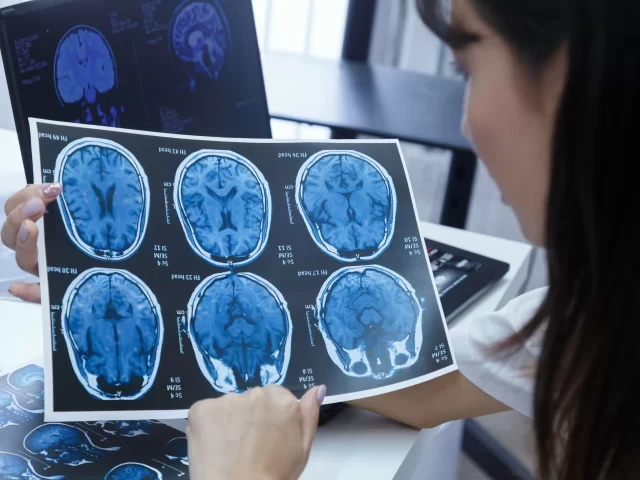If You Have These Symptoms, a Neurosurgeon May Help

Some people go through their entire lives never having to see a neurosurgeon or a neurologist, and that’s a good thing. Both types of doctors treat conditions affecting the nervous system, including the brain, spine and peripheral nerves in the body. The main difference between them is that neurosurgeons perform surgery, usually a last resort option for nervous system conditions that cannot be treated or do not improve with more conservative approaches.
Some common conditions treated by neurosurgeons include stroke, epilepsy and other seizure disorders, aneurysms, blocked arteries, back pain, spinal cord conditions, congenital defects involving the nervous system, peripheral nerve issues, tumors of the brain and spine, as well as head, neck and spine injuries. They may also treat conditions resulting in chronic pain, disability or paralysis.
Here are 7 reasons why you may see a neurologist or neurosurgeon:
- Pain – If you experience severe or chronic pain that may be connected to your brain, neck or spine, a neurologist or neurosurgeon can perform tests to pinpoint the source of your pain and determine whether surgery is needed.
- Numbness – If you have chronic numbness or tingling, especially in your arms or legs, it may be a sign of sensory nerve damage or may be due to problems related to your spine.
- Seizures – There’s not a one-size-fits-all description of what a seizure looks like or why it occurs, but if you suspect that you are having seizures, a neurologist or neurosurgeon should be consulted as soon as possible for a proper diagnosis and plan of treatment.
- Stroke or aneurysm – Neurosurgeons are often called to perform emergency surgery when someone has a stroke or a brain aneurysm. Time is of the essence in treating these conditions and surgery may save a person’s life.
- Trauma – If you experience serious injury to your back or head from a fall, automobile accident or other trauma, a neurosurgeon may be needed. Often surgery is done on an emergency basis, but there are situations in which trauma causes lingering problems that may be improved by seeing a neurologist or neurosurgeon at a later date.
- Tremors or uncontrolled movements – If you experience tremors, clumsiness or other body movements you can’t control, it may be a sign of a nervous system disorder or head trauma.
- Chronic headaches – If you have persistent headaches or migraines, a neurologist or neurosurgeon may be able to isolate what triggers the pain. If it is determined that surgery will help the condition, a neurosurgeon will be called on to perform the surgery.
Except in the case of emergencies, you will typically see a neurologist for an initial evaluation if you are experiencing neurological symptoms. If it is determined that the cause of the problem might require surgery, you will then be referred to a neurosurgeon.
Copyright 2022-2023 © Baldwin
Publishing, Inc..
Health eCooks™ is a designated
trademark of Baldwin Publishing, Inc. Any duplication or distribution of the information contained herein without
the express approval of Baldwin Publishing, Inc. is strictly prohibited.